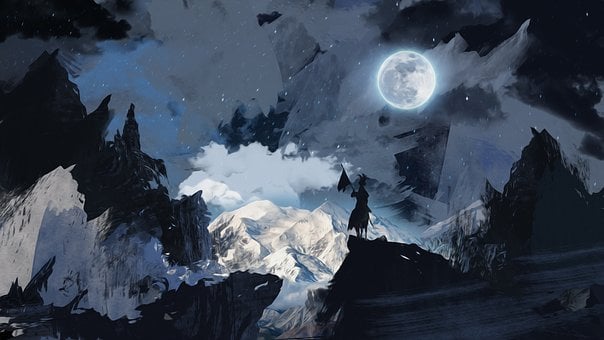
The moon is the only natural satellite of the earth. We see it because sunlight falls on the moon and is reflected. The moon is the fifth largest natural satellite in the solar system. The moon is our closest neighbor in the universe.
Its identity is the same for one generation. As a child, the children imagined the moon as a small house of a spinning old woman. Sometimes it is used as a metaphor by romantic people and poets of different ages.
This is the only natural satellite of the earth located only 3,64,400 kilometers away from the earth. Happiness and sorrow have been with the world for almost four and a half billion years. In this advancement in science, we have also succeeded in the lunar mission. All the advanced technologies of today seem to be competing to reduce all distances. After a while we may go to the moon to spend the holidays. Scientists have recently discovered that the moon is about 75 million years younger than Earth.
But what will happen if this moon does not exist or is destroyed?
If there is no moon, the first and foremost change we will notice is that the night of the earth will never be as bright as before. If there is no moon, the temperature on Earth will be 60 ° F at noon and about -51 ° C in the morning, which is almost equal to that of Mars. There will be no tide without the moon. Due to the moon, the sea level rises.
Without the moon, the earth would be completely under the control of the sun.
Take a look at the earth's moon. What a wonderful creation of God! Neither the moon nor the earth would be uninhabitable. Because there is a moon, we get light at night. At night the light of the sun is reflected on the moon and comes to the earth so that the earth is illuminated at night. But without this moon our night would be black and dark. A world of intense darkness. How perfect is the rotation of the moon on the earth. Because of the moon, the earth is fixed on its axis. The rotation speed of the earth is controlled. The Moon's gravitational pull protects the Earth from incoming asteroids. If there is no moon, then sea water has the potential to spread evenly over all our earths and as a result the friction of water with earth will also decrease.

Just as the earth pulls the moon as a gravitational force, so does the gravitational ball exert an effect on the moon and the earth. As a result, if the moon is lost, the speed of the earth will increase a lot and this will reduce the time period of our day. So if the moon suddenly disappears, our day will be 8 or 12 hours instead of 24 hours. As a result, major disasters such as tsunamis and tidal surges will occur on the earth, since there will be no moon and the earth will now slowly move towards destruction in the possession of all the sun. If there were no moon, our seasons would not change. Then somewhere it would rain all year round, and somewhere it would be sunny all year round.
Which will have an adverse effect on our economy. If there was no moon, there would be no eclipse. Lunar eclipse Solar eclipse We are familiar with these two words. But if there is no moon, then it will be accepted through what or by whom. And if our days get shorter because of the absence of the moon, then our calendar will also change. If the day on earth is 8 or 12 hours, then the year on our earth will be 1000 days and more, not 365 days.






0 Comments